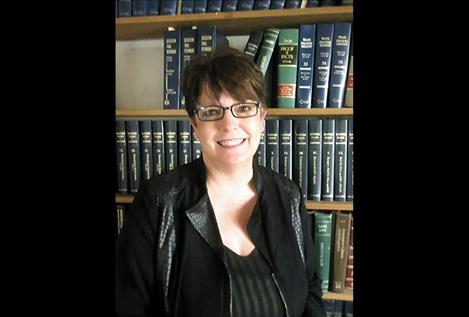Drug court coordinator hired, enrollees being accepted
Hey savvy news reader! Thanks for choosing local.
You are now reading
1 of 3 free articles.
Lake County's new Court coordinator is now on duty.
Missoula resident Christina Ellsworth started April 17 in a position that is funded for one year as a pilot project through a $50,000 grant from the Gianforte Family Foundation.
Ellsworth met with other members of the drug court team last Thursday to begin planning operations.
District Court Judge James A. Manley donated some office space in his former law office at 201 Fourth Ave. E. for the drug court, and the Confederated Salish and Kootenai Tribes donated a computer.
Ellsworth, who has a background in law enforcement administration and has worked with the Department of Correction’s youth division, wrote a $350,000 grant request with the federal Department of Justice last year. The county expects to find out if it was awarded the grant in August or September.
Manley has said that 90 percent of the nearly 500 district court cases filed last year were drug related. The hope is that the drug court will eventually lead to a reduced caseload as drug addicts and users overcome their issues. The program has the capacity to eventually enroll 30 to 40 people although it will likely start with a half dozen.
Ellsworth notes that Lake County’s drug court program is “kind of a hybrid” in that it will try to help those with pre- and post-adjudicated district court cases. In other words, it is for those who face a drug-related charge or have a conviction.
“The purpose of drug court is to help everyone who is high-risk,” she said.
The drug court program will consist of four phases that take an average of 18 months to complete. Following graduation, a one- or two-year aftercare program will be offered, Ellsworth said.
“We try to stabilize them” in phase one, which lasts eight weeks and includes random drug testing twice a week along with treatment and self-help programs.
In phase two, which lasts 12 weeks, maintaining sobriety is the goal.
Relapse prevention and a focus on daily living skills are the focus of phase three, which lasts 16 weeks. Enrollees will need to pay a $25 assessment fee and $5 each week beginning in phase three, which also requires a community service project.
Phase four focuses on maintaining recovery with a self-directed management plan. Enrollees must be completely drug-free throughout the fourth phase.
A weekly visit with Manley is required in each phase, Ellsworth said.
As part of an aftercare program, Ellsworth plans to call graduates monthly and then quarterly for up to two years. Graduates will be able to reenroll in the program if they have a problem, she said.
Local addiction counselor Jay Brewer will be offering assessments for prospective enrollees through Western Montana Addiction Services in Polson. If he believes a person is a good candidate, the next step is a meeting with Manley.
“This is a privilege to be accepted into drug court,” Brewer said. “They have to earn their way through every phase.”
A sober living house at Black Bear Ranch about 10 miles north of Hot Springs, which is owned by CSKT, will likely be part of the equation, Brewer said.
Sunburst Mental Health Services in Polson will provide mental health screenings for enrollees.
James Lapotka, deputy county attorney, said the drug court welcomes donations from the community. For more information, call Ase Carlson, district court staff attorney, at 406-883-7252.
















